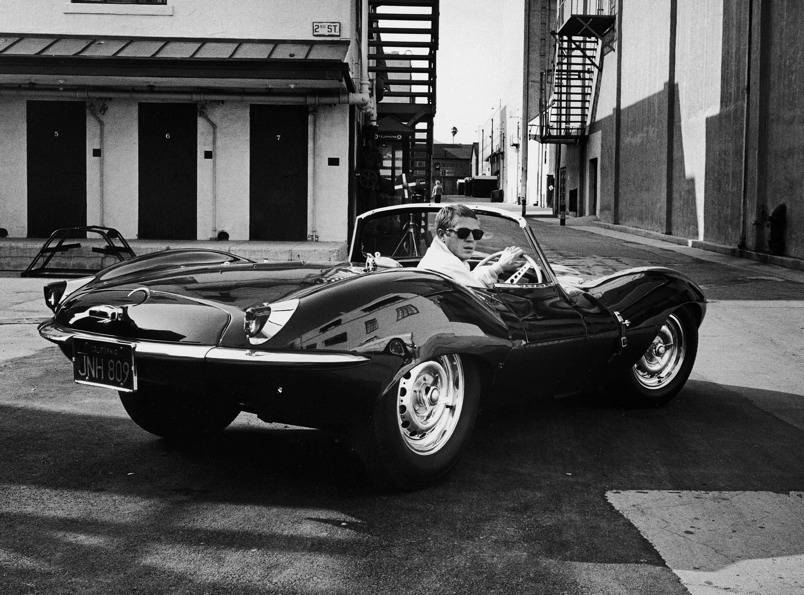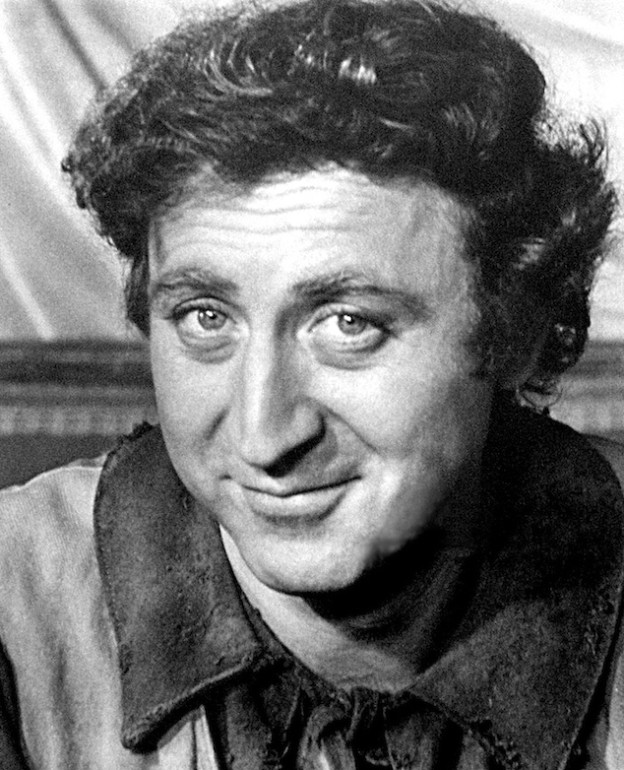When the great comic actor Gene Wilder passed away on August 29th at the age of 83 due to complications from Alzheimer’s it felt just as though a favorite eccentric uncle had died. (The New York Times obituary is here.) For those of us who grew up in the late 1960s, 70s and 80s Wilder left an indelible impression. If you enjoyed funny movies in the least (and really, who doesn’t?), Wilder was one of the joys of the cinema during that period, all the more so because there was nobody before or since who quite possessed his unique blend of neurotic mania and soulful mensch-ness. Even when Wilder was portraying a character a little bit naughty, like Leo Bloom in the original The Producers, the unpredictable Willy Wonka of chocolate factory fame, a descendent of Victor Frankenstein compelled to pursue the same macabre obsessions as his infamous grandfather or a wrongly convicted con alongside his great comedy partner Richard Prior in Stir Crazy, Wilder always seemed to juxtapose a sweetness with his delightfully manic outbursts.
After studying acting at the Old Vic in England and the HB Studio in New York, the Milwaukee-born Wilder first came to wide attention with a small but impactful role in Warren Beatty and Arthur Penn’s seminal Bonnie and Clyde (1967), interrupting the film’s otherwise grim narrative with a burst of humor as a rather eager and happy hostage. But his major breakthrough came a year later in Mel Brooks’ all-time classic, the hysterically funny The Producers. As the nebbishy and neurotic Leo Bloom, Wilder was perfectly matched with the bigger-than-life, morally bankrupt has-been theater producer Max Bialystock, played to the hilt by the peerless Zero Mostel. Amidst the side-splitting opening sequence, as Bloom is abruptly initiated into Bialytsock’s crazy world when he comes to do the producer’s accounting books, it is Bloom who conceives of the idea of raising much more money than needed for a production so bad that it is doomed to close on opening night, thereby allowing the surplus cash to be kept. Bialystock runs with it, coercing Bloom to be his accomplice. They then find a fantastically wretched play called “Springtime for Hitler” and the rest is cinematic comedy history.
https://www.youtube.com/watch?v=r2pt2-F2j2g
His next major role was as the title character in 1971’s Willy Wonka and the Chocolate Factory. Though not a major hit at the time it became a cult classic with some likening it to a latter day Wizard of Oz, a film that works as both a kids’ movie and something more profound, and Wilder’s influence can be seen throughout in his unique bits of improvisation and inspiration. Johnny Depp was good in the remake but it’s hard to think of anyone other than Gene Wilder as the definitive Willy Wonka, especially when delivering his unexpectedly poignant song, “Pure Imagination.”
He was drafted again by Brooks, as a last minute replacement no less, for 1974’s screamingly funny Western satire, Blazing Saddles. Against type, Wilder played a laconic gunman with a drinking problem given renewed purpose by his fast friendship with the town’s besieged new black sheriff, played by Clevon Little. As if that wasn’t enough comedy gold, that same year Brooks and Wilder collaborated on the brilliant Young Frankenstein, a masterpiece that was Wilder’s concept and that he co-wrote. Filmed in beautiful black and white as an elaborate sendup of 1930s Universal-style horror, Young Frankenstein became a classic in its own right with an unparalleled ensemble cast — including Cloris Leachman, Teri Garr, Madeline Kahn, Kenneth Mars and newcomers Marty Feldman and Peter Boyle — and pitch perfect direction and screenplay. It stands as one of the great collaborative movies of all time and is arguably both Brooks and Wilder’s best work.
1976 saw a magical bit of good casting as Wilder was paired with Richard Pryor for the first time in Silver Streak. Alongside the wonderful Jill Clayburgh in this very good, very funny comedy-thriller about murder and mayhem aboard an LA-to-Chicago train, the two men made cinema history as the first bi-racial comedy duo and audiences loved their unlikely, yin-yang chemistry. As a result, Wilder and Pryor would make three more films together, 1980’s excellent prison comedy Stir Crazy (directed by Sidney Poitier!), the underrated See No Evil, Hear No Evil (1989) and finally Another You in 1991 when Pryor was already greatly diminished by multiple sclerosis.
Wilder found another impactful partnership when he met Gilda Radner on the set of 1981’s Hanky Panky. The two became comedy royalty when they married in 1984. But the relationship ended tragically when Radner passed away in 1989, a victim of ovarian cancer. This loss inspired Wilder to establish an early detection center in Los Angeles, as well as co-founding Gilda’s Club in New York City, a non-profit support group for cancer patients and their families that now has branches throughout the United States (where it is now known as the Cancer Support Community) and Canada. Wilder found love again when he met Karen Webb while working on See No Evil and they married in 1991. They remained together until his death, a much longer if less romanticized relationship than his union with Gilda Radner, so spare a thought for Ms. Webb at this sad time as well.
https://www.youtube.com/watch?v=BLzPRyMmOGY
Though Gene Wilder had largely retired from acting since the early 1990s, instead concentrating on writing, the importance of his best work grew over the years as his special films became part of the greater pop cultural and comedy firmament. That makes it extra difficult to lose such an original actor who got the laughs because he played his characters so truthfully, one who was always so audaciously alive and vibrant on screen. For those of us who grew up with his movies it feels as if we’ve lost a very funny older friend, one we could turn to for a guaranteed laugh no matter how the world was treating us. But we must also remember that Gene Wilder lived a wonderfully full life, was a truly good man and left a massively joyful contribution to the world that survives him via his films. And if we’re being just a little sentimental, it’s not hard to imagine Gene reunited with Richard and Gilda and Marty and Peter and Kenny and Madeline someplace special, cutting up with them all again, his explosive, utterly contagious laugh ringing out through the ether in the company of fine old friends.







